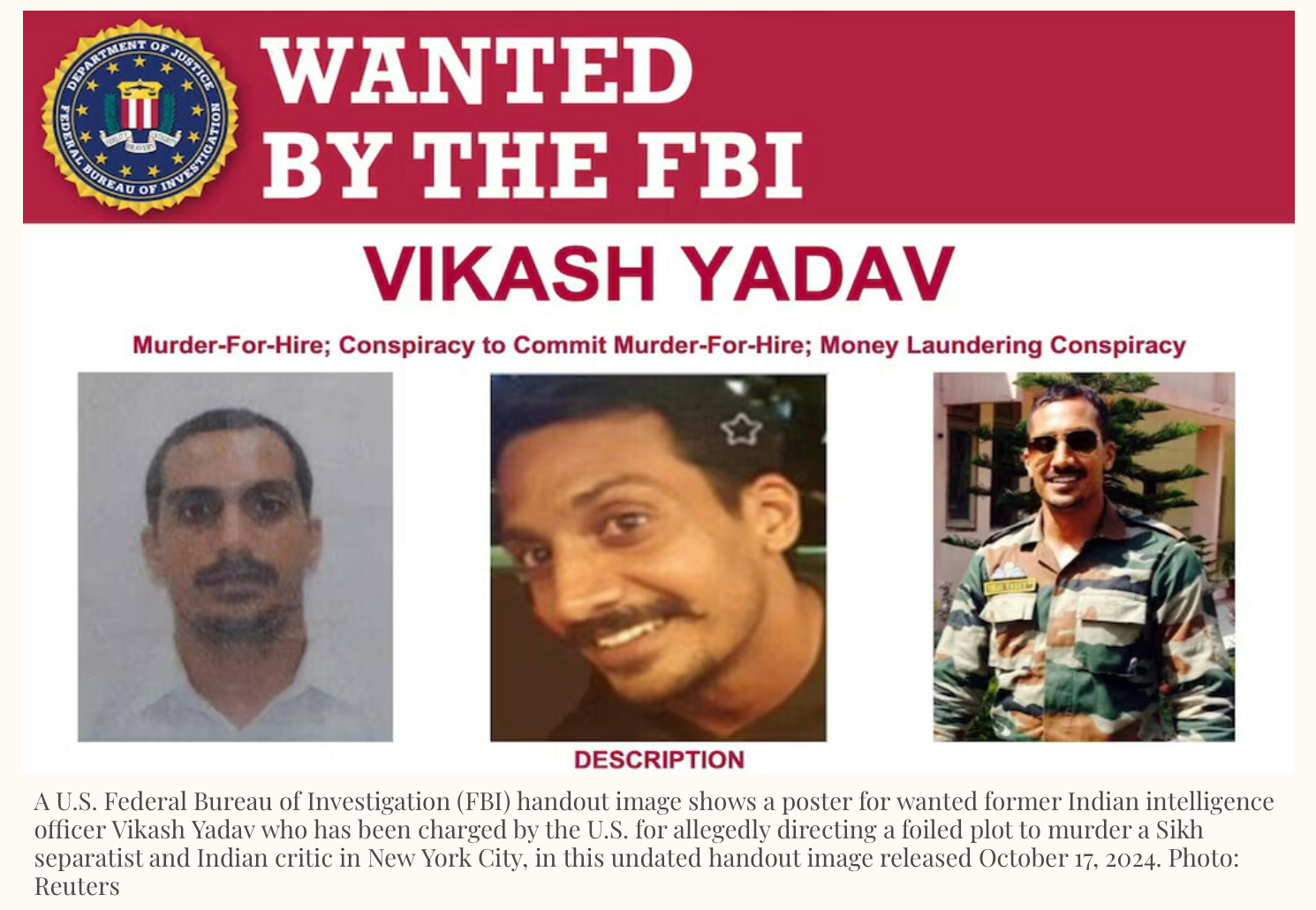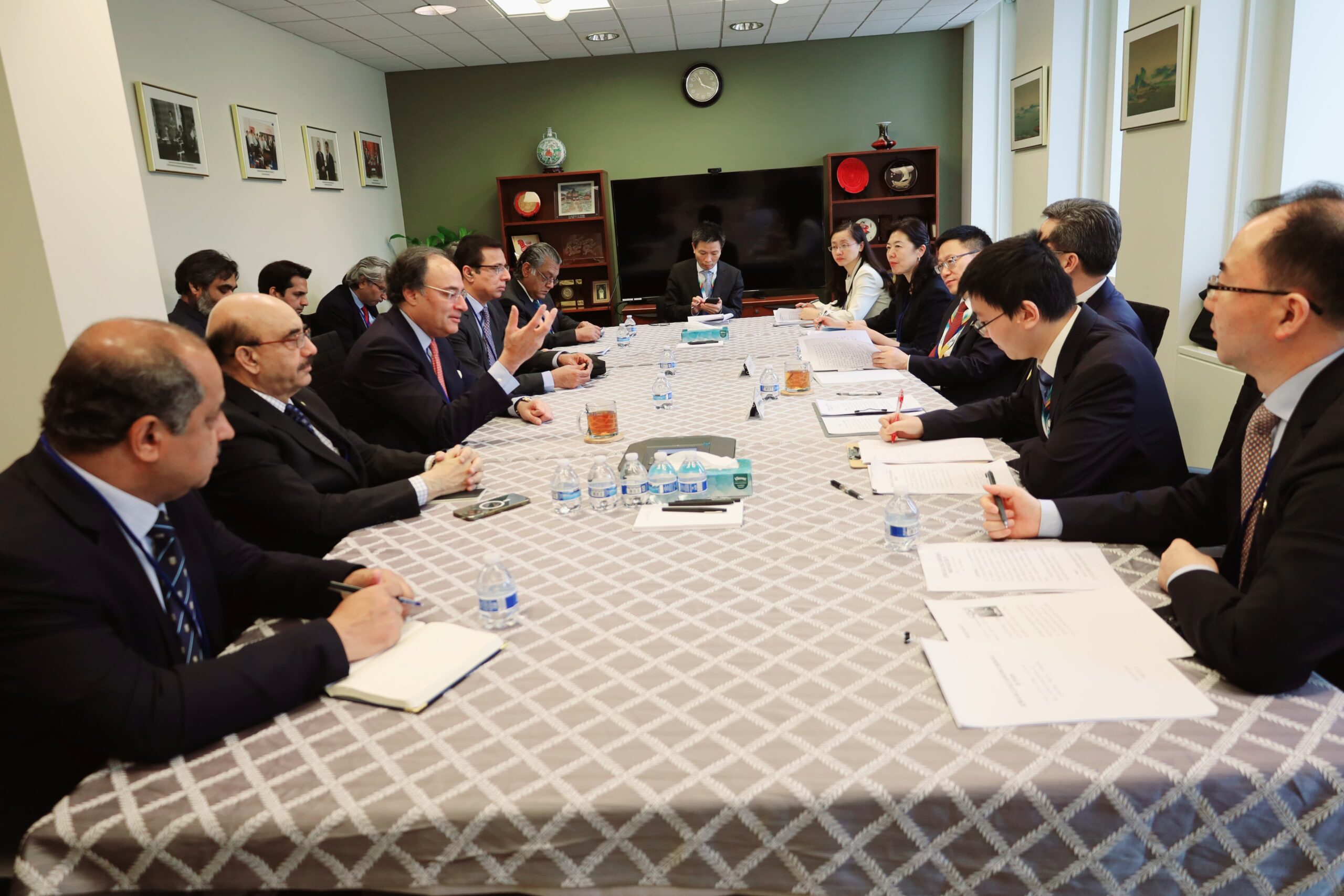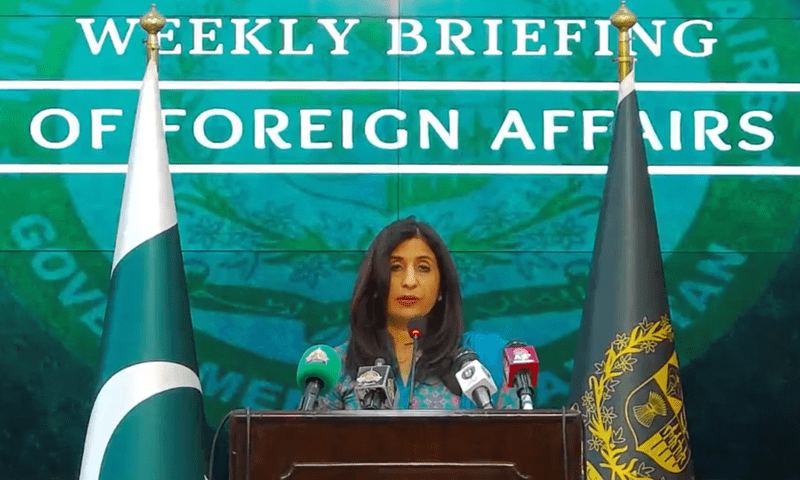An Indian ex-official, Vikash Yadav, has been charged by U.S. authorities with allegedly orchestrating a murder-for-hire plot targeting a prominent Sikh separatist leader. However, Yadav, along with his family, has strongly denied the allegations, claiming that the charges are based on false media reports. This case, which has garnered international attention, is raising questions about India’s intelligence services and the U.S.’s request for Yadav’s extradition.
Vikash Yadav Denies Charges Through Family
Vikash Yadav, a 39-year-old former official from India, is accused by the U.S. Department of Justice of leading a failed assassination attempt on Sikh separatist leader Gurpatwant Singh Pannun in 2022. Pannun, a known advocate for Sikh separatism and the founder of Sikhs for Justice (SFJ), has been a vocal critic of the Indian government. Yadav, according to an indictment unsealed last Thursday, was allegedly the mastermind behind the plot, which involved a hitman who was paid $15,000 to carry out the assassination.
The U.S. government claims that Yadav directed another Indian citizen, Nikhil Gupta, to coordinate the attack, but the plot was ultimately unsuccessful.
Speaking to his cousin, Avinash Yadav, from their ancestral village of Pranpura in Haryana, about 100 kilometers from New Delhi, Vikash Yadav dismissed the allegations. According to Avinash, Vikash described the accusations as “false media reports” during a conversation the two had on Saturday. The family is shocked by the developments, with Avinash stating, “He never mentioned anything about working for the spy agency.”
Yadav’s Alleged Ties to Indian Intelligence
Vikash Yadav’s family insists that they have no knowledge of his involvement with India’s Research and Analysis Wing (RAW), the country’s external intelligence agency. The U.S. indictment claims that Yadav was once a part of this secretive organization, although Indian authorities have not publicly confirmed or denied this connection. In response to the charges, the Indian government has stated that Yadav is no longer a government employee, but they have remained silent on whether he served as an intelligence officer.
Avinash Yadav, who regularly communicates with his cousin, says the family always believed Vikash was employed with the Central Reserve Police Force (CRPF), a paramilitary organization in India. According to Avinash, Yadav had been working as a deputy commandant since joining the CRPF in 2009. The family is at a loss to understand the allegations, especially considering their modest lifestyle. “Where will so much money come from?” asked Avinash, pointing to their humble single-storey home in the village. “Can you see any Audis or Mercedes lined up outside this house?”
A Family Steeped in Service
Yadav’s background is deeply rooted in Indian security services. His late father served as an officer in India’s Border Security Force until his death in 2007, while Vikash’s brother currently works with the police in Haryana. Growing up, Vikash was known as a quiet, bookish child with a talent for athletics, according to family members. Amit Yadav, another cousin, remembers Vikash as a national-level marksman who led a disciplined life.
Given this background, the family finds it difficult to reconcile the allegations against Vikash with the man they know. “Only the government of India and Vikash know what has happened,” said Amit Yadav, stressing that they are awaiting more clarity from officials.
U.S. Seeks Extradition, Family Seeks Answers
As the case unfolds, the U.S. government is reportedly seeking Yadav’s extradition to face charges on American soil. The Washington Post, citing U.S. officials, has reported that Yadav is still in India, and negotiations between the two governments regarding his extradition are expected to take place.
Back in Pranpura, the family remains in shock. Yadav’s mother, Sudesh Yadav, 65, is still trying to process the allegations. “What can I say? I do not know whether the U.S. government is telling the truth or not,” she said, visibly distressed by the situation. Sudesh maintained that her son had “been working for the country,” and questioned why he would be involved in such a plot.
The Indian government has not made any official statement on Yadav’s current whereabouts or whether they plan to comply with the U.S. extradition request. The silence has left the family feeling abandoned. “We want the Indian government to support us,” Avinash Yadav said. “They should inform us what has happened. Otherwise, where will we go?”
Village Life in Pranpura
Pranpura, a village with around 500 families, has a long-standing tradition of sending its young men into India’s security forces. Many of the residents see military and paramilitary service as an honorable career path, and Vikash Yadav was no exception. Growing up in this environment, it was natural for him to join the CRPF after completing his studies. His achievements in the security forces, including paratrooper training, made his family proud.
The news of the U.S. indictment has shaken the village. Neighbors, who have known Vikash since childhood, are struggling to come to terms with the allegations. Many express disbelief, noting that Vikash was always seen as a dedicated and disciplined officer.
Political and Diplomatic Implications
This case has significant implications for both India and the U.S. It comes at a time when tensions between India and Sikh separatist groups have resurfaced, particularly in the wake of renewed calls for an independent Khalistan, a separate Sikh state. The Indian government has been cracking down on separatist activities both within the country and abroad, which has led to strained relations with countries hosting Sikh diaspora communities, including Canada and the United States.
For India, the allegations against a former intelligence officer complicate its international image and raise questions about the extent of its involvement in overseas operations targeting separatist leaders. For the U.S., this case adds to the growing list of extradition requests between the two countries, with each side navigating the complexities of diplomatic relations.
The charges against Vikash Yadav have left his family and village in a state of confusion and disbelief. With the U.S. pushing for his extradition and India remaining tight-lipped about his current status, it remains to be seen how this case will unfold. For now, Yadav’s family continues to maintain his innocence, hoping for more information from the Indian government to shed light on the truth behind these serious allegations.
As the case progresses, the world watches to see whether this will become a flashpoint in India-U.S. relations or simply another chapter in the ongoing battle between India and Sikh separatist groups.



